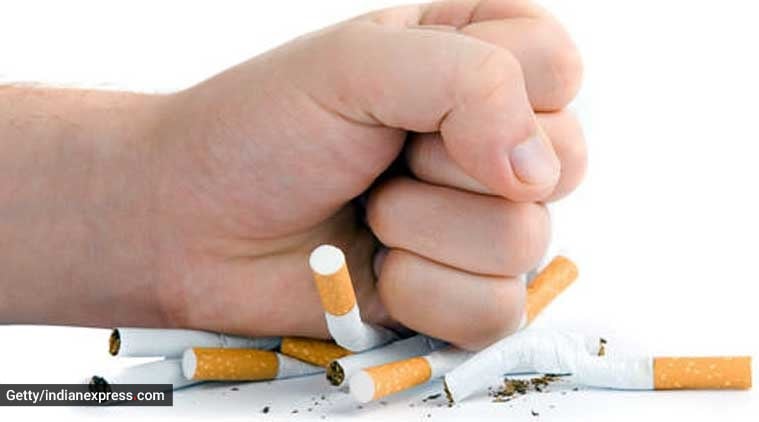A public awareness drive and better industrial resolve will help to reduce or even stop the use of tobacco products.

With the lockdown restrictions in place, if one can manage two to three weeks without smoking, then why not forever? “Today is the best time to quit smoking. People are now worried about immunity, respiratory issues and are willing to adopt health practices. It’s the most appropriate time to launch a drive, ‘Smoking ko karo na’ and to make people aware of the harmful effects of tobacco,” explained Dr Ravi Gaur, chief operating officer, Lab Director Oncquest Labs.
One needs a powerful, yet strong personal reason to quit smoking. Lockdown means spending most of the time with the family, dear ones and in isolation. By smoking, one is exposing families to second-hand smoke. Many times, smoking is a social activity among friends and colleagues. With social distancing in place, gatherings being banned, it’s the most opportune time to “kick the butt”, explained Dr Gaur on the occasion of World NO Tobacco Day, which is observed annually on May 31.
And if you want to embark on a journey of quitting this harmful habit, the conditions could not be more conducive. About 55 per cent of smokers and nearly 50 per cent of smokeless tobacco users are interested in quitting the habit or plan to do so, as per the GATS report. The report added that it is estimated that more than 1.3 million people in India die of health issues caused by tobacco use every year and of them, one million deaths can be attributed to smoking and the rest to the use of smokeless tobacco products. The more popular tobacco products in India are smokeless. Khaini and gutka, followed by paan, tobacco, products for oral application and paan masala.
Given the pandemic, when the infected person spits, the saliva loaded with virus forms the droplets in the air and risks the entire population in the sphere of influence. A public awareness drive and better industrial resolve, will help to reduce or even stop the use of tobacco products.
Smoking suppresses immunity and increases the risk of being infected with diseases related to respiratory illnesses like COVID-19 or tuberculosis. Smokers are susceptible as fingers (and possibly contaminated cigarettes) come in contact with lips which increases the possibility of transmission of virus from hand to mouth.
Smoking may raise the risk of Covid-19 by elevating enzymes that allow the coronavirus to gain access into lung cells. Smokers and people with chronic obstructive pulmonary disease may have elevated levels of an enzyme called ACE-2, which helps the virus enter cells in their lungs, where it replicates, said a study published in the European Respiratory Journal.
Quitting smoking helps bring the heartbeat back to normal in 20 minutes; within a day, blood levels of carbon monoxide fall; in few weeks, the risk of getting heart attack reduces and finally over a long period of time, you reduce the risk of getting lung, oral and other cancers. Agreed Dr Vikas Goswami, senior consultant and medical oncologist, Max Hospital, “There is no iota of doubt that tobacco usage is a leading cause of cancer. People who consumes tobacco in any form be it in form of smoking or chewing or even exposed to second hand smoke have an increased risk of cancer because of many chemicals that damage the DNA.”
However, most smokers suffer from addiction, so a sudden unavailability is likely to plunge people into withdrawal. Thus, there is a need to have an infrastructure to support people through this difficult phase. There are many alternatives like nicotine patches or gums, but those are costly. A reduction in cost will ensure long-term benefits and a healthier nation. If you are determined and care for yourself and your loved ones, keep trying to quit!
? The Indian Express is now on Telegram. Click here to join our channel (@indianexpress) and stay updated with the latest headlines
For all the latest Lifestyle News, download Indian Express App.
Source: Read Full Article





